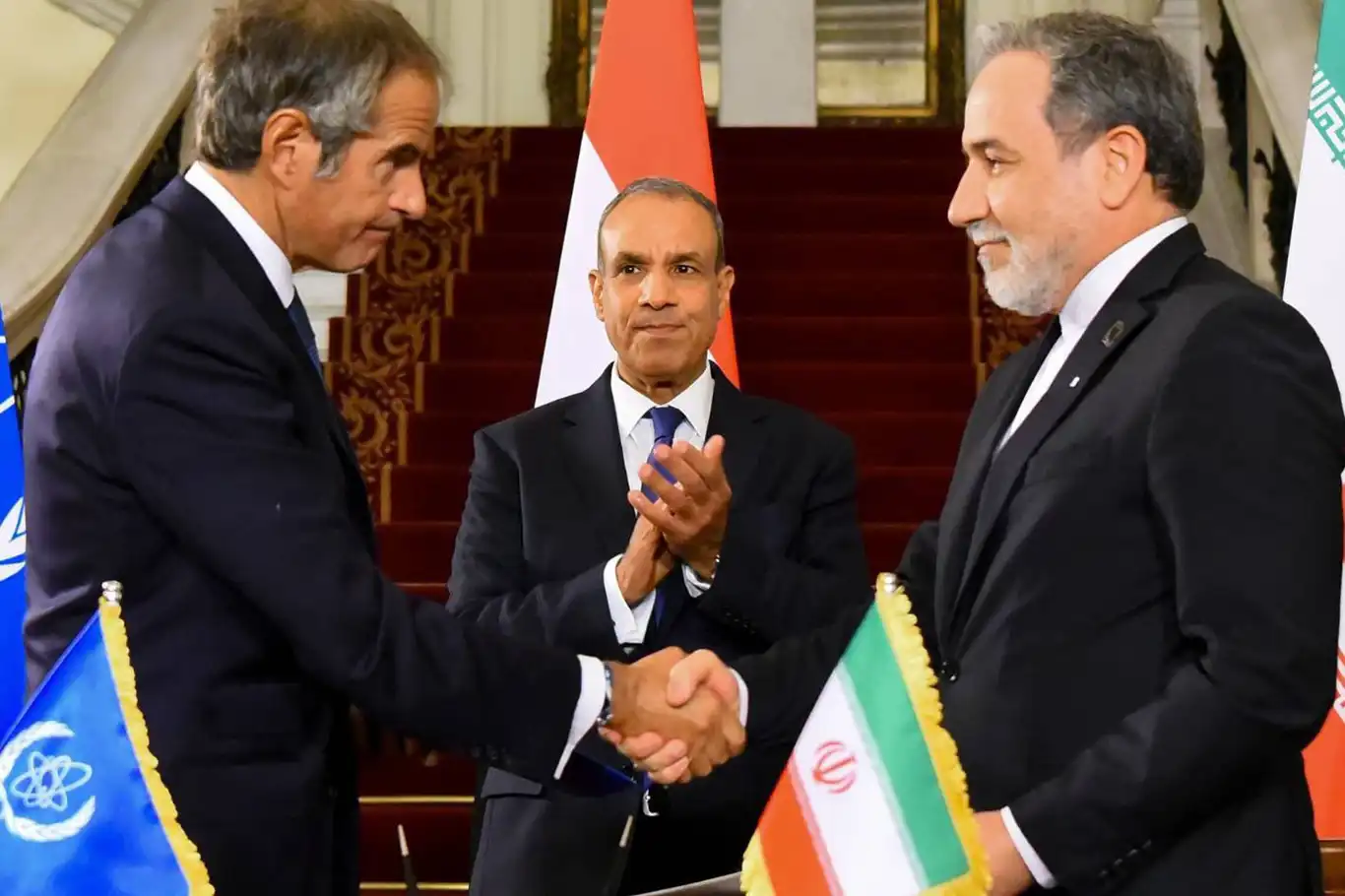Iran secures nuclear deal with IAEA to avert UN referral


Iran and the International Atomic Energy Agency (IAEA) have reached a new technical agreement, dubbed the "Cairo Agreement," to prevent Iran's nuclear case from escalating to the United Nations Security Council, Iranian officials announced Sunday.
The deal, finalized after months of intense diplomacy, aims to maintain open diplomatic channels and reduce the risk of triggering the "snapback" mechanism for reinstating sanctions.
The agreement comes amid heightened tensions over Iran's nuclear program, with Tehran facing international pressure and accusations of non-compliance. Iranian diplomats hailed the deal as a significant step toward stabilizing relations with the IAEA while addressing Iran's security concerns.
Iran’s Foreign Ministry described the Cairo Agreement as the result of "intensive diplomacy and special efforts" to avoid a resolution declaring Iran non-compliant with its nuclear obligations. "This framework ensures continued dialogue and cooperation while respecting Iran’s sovereignty," a ministry spokesperson said.
The agreement introduces a new approach shaped by recent geopolitical shifts, including alleged attacks on Iranian nuclear facilities attributed to Israel and the United States. Citing a "fundamental change of circumstances" under international law, Iran argued that prior cooperation terms were untenable given threats to its nuclear infrastructure.
The Cairo Agreement between Iran and the IAEA, incorporates several key provisions to ensure continued cooperation while addressing Tehran’s concerns. It aligns with Iran’s parliamentary legislation governing nuclear activities and explicitly acknowledges the country’s legitimate security concerns, particularly for facilities targeted in alleged attacks by Israel and the United States. The agreement establishes tailored cooperation terms, applying different conditions to nuclear sites based on whether they have been attacked. All steps of cooperation require approval from Iran’s Supreme National Security Council, ensuring national oversight. Additionally, the deal strengthens safeguards for classified nuclear information and sets clear terms for transparency and inspections, balancing Iran’s security needs with international obligations.
While the agreement marks a diplomatic win for Tehran, challenges remain. Mistrust between Iran and the IAEA persists, and European responses to the deal are uncertain. The success of the agreement in preventing the reimposition of sanctions via the snapback mechanism will be a critical test.
Iranian officials framed the Cairo Agreement as a testament to their commitment to diplomacy and engagement with the international community. "This deal creates a platform for rebuilding trust and opens the door to broader negotiations," one official said.
Analysts suggest that the agreement’s implementation will be closely watched, as it could shape the trajectory of Iran’s nuclear program and its relations with global powers. For now, the Cairo Agreement offers a fragile but hopeful step toward de-escalation. (ILKHA)
LEGAL WARNING: All rights of the published news, photos and videos are reserved by İlke Haber Ajansı Basın Yayın San. Trade A.Ş. Under no circumstances can all or part of the news, photos and videos be used without a written contract or subscription.
A powerful explosion at the "Mis Tesoros" bar in Madrid’s Puente de Vallecas district on Saturday killed one person and injured at least 25, according to local authorities.
The Gaza Health Ministry confirmed on Sunday that the Palestinian death toll from Israel’s relentless military campaign since October 2023 has risen to 64,871, with at least 164,610 people wounded.
Israeli occupation forces carried out a large-scale military incursion early Sunday morning into the towns of Saysoun and Jamlah in Syria’s western Daraa countryside, intensifying fear and tension among local residents.